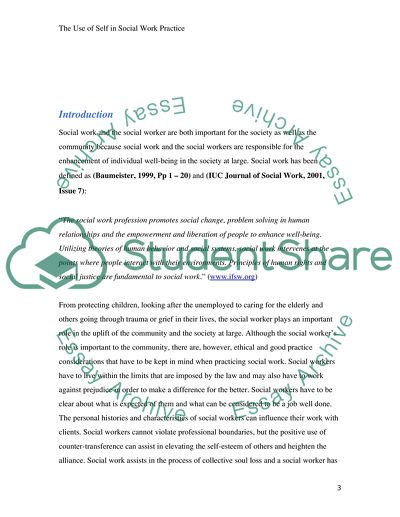Cite this document
(The Use of Self in Social Work Practice Essay Example | Topics and Well Written Essays - 2250 words, n.d.)
The Use of Self in Social Work Practice Essay Example | Topics and Well Written Essays - 2250 words. Retrieved from https://studentshare.org/sociology/1702798-essay-that-explores-the-use-of-self-in-social-work-practice
The Use of Self in Social Work Practice Essay Example | Topics and Well Written Essays - 2250 words. Retrieved from https://studentshare.org/sociology/1702798-essay-that-explores-the-use-of-self-in-social-work-practice
(The Use of Self in Social Work Practice Essay Example | Topics and Well Written Essays - 2250 Words)
The Use of Self in Social Work Practice Essay Example | Topics and Well Written Essays - 2250 Words. https://studentshare.org/sociology/1702798-essay-that-explores-the-use-of-self-in-social-work-practice.
The Use of Self in Social Work Practice Essay Example | Topics and Well Written Essays - 2250 Words. https://studentshare.org/sociology/1702798-essay-that-explores-the-use-of-self-in-social-work-practice.
“The Use of Self in Social Work Practice Essay Example | Topics and Well Written Essays - 2250 Words”, n.d. https://studentshare.org/sociology/1702798-essay-that-explores-the-use-of-self-in-social-work-practice.


